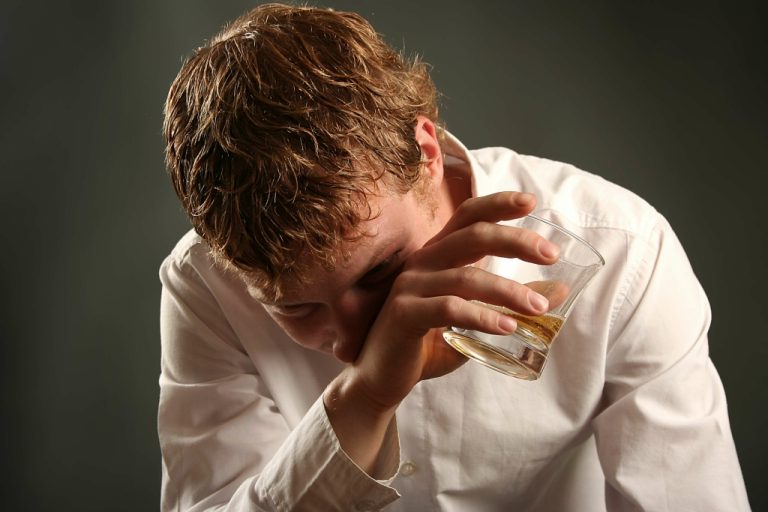Alcohol Consumption and Obesity: An Update
September 27, 2022 1:49 pm Leave your thoughtsMemory loss or fragmented memories of the previous night might leave you feeling uneasy or worried about your health. If you’re having difficulty sticking to your goal or just want some extra guidance, consider reaching out for professional support. You might run into obstacles along the way that tempt you to drink. Keep in mind the reasons you chose to cut back on or quit alcohol. Satisfying hobbies can distract you from wanting to drink, but they also help you relax — something everyone needs to do.
It has also been suggested that some of the energy ingested as alcohol is ‘wasted’, due to the activation of the inefficient hepatic microsomal ethanol-oxidizing system (MEOS). The MEOS is induced through chronic alcohol intake, and the level of induction increases with increased intake 54, 67. Oxidation of alcohol via the MEOS produces less ATP than oxidation via alcohol dehydrogenase, using the energy from alcohol intake primarily to enhance heat production 37, 54. The extent to which wasted energy from regular alcohol consumption contributes to weight gain prevention is unclear. Heredity and predispositions can contribute to binge drinking. These may include a family history of alcoholism, genetic factors, mental health conditions like depression or anxiety, impulsivity, low self-esteem, or a tendency towards risk-taking behavior.
- PLUS, the latest news on medical advances and breakthroughs from Harvard Medical School experts.
- What’s most important is looking at your drinking habits and finding a way to cut back that works for you.
- Alcohol use disorder includes a level of drinking that’s sometimes called alcoholism.
About Medical News Today
That increase may be contributing to the increasing rates of alcohol-related illnesses and death. But both alcoholism and binge drinking can have similar health consequences. The CDC defines a binge-drinking episode as at least four drinks for women or five drinks for men within a two-hour period.
Alcoholism and Alcohol Abuse
Studies show that binge drinking can affect your working memory, which is your ability to store short-term information and keep track of what you’re doing. The spiral from binge drinking into alcohol addiction can be a gradual process. As you build a tolerance to alcohol, you may find that you need to drink more and more to feel the same effects.

How to avoid the risks of binge drinking

Beyond adding energy to a meal, alcohol may actually stimulate food intake 5. Of the 17 studies reviewed by Yeomans, ten showed increased food intake following alcohol consumption 5. One explanation is that there is a learned association between alcohol and eating; however, several experimenters disguised the presence of alcohol in their protocols and still found increased energy intake 5. It is unclear whether alcohol promotes food intake in the absence of hunger; however, it has been noted that alcohol may amplify individuals’ perception of appetite in response to food stimuli 5. A review by Yeomans 5 highlights some of the potential explanations for alcohol’s influence on weight gain or obesity. First, as previously mentioned, energy from alcohol appears to be additive to energy from other sources 5.

Heavy drinking is believed to cost the U.S. economy more than $200 billion a year in lost productivity, health costs, and property damage. The National Helpline does not provide counseling, but it does connect callers with local resources such as counseling services, support groups, and treatment facilities. At Ria, we offer weekly meetings with certified counselors to help members stay on track and build skills for long-term change.
You might struggle with the immediate physical consequences—headache, nausea, weakness, poor sleep quality. Or perhaps you later feel shame and embarrassment about things you said and did while under the influence. You might wake up with questions like, “Did I do something stupid to endanger my loved ones? ” These lapses in memory only add to the overall hangover and sense of dread you experience the next day. Exploring, in writing, what you find difficult and when you most want to drink can help you notice patterns that offer more insight into your alcohol use.
Public Health
Insufficient knowledge about the risks and consequences of excessive alcohol consumption can contribute to binge drinking. While binge drinking alcohol may not seem problematic because the occurrence doesn’t happen frequently, every time you binge drink, it poses a risk to your health. Bingeing has both short- and long-term risks, including alcohol poisoning, increased risk of a stroke or heart attack, and damage to the heart, brain, and liver.
- Meeting for a happy hour or partaking in a prolonged dinner with several bottles of wine may be part of the norm of your current lifestyle.
- You don’t have to give up drinking entirely—there’s plenty of middle ground between binge drinking and total abstinence.
- By taking control of your choices and seeking support when needed, you can make positive changes in your relationship with alcohol and prioritize your health and well-being.
- We strive to create content that is clear, concise, and easy to understand.
Unfortunately, even one night of binge drinking why can’t i control my drinking can be dangerous to your health. Binge drinking has both short- and long-term health consequences. This occurs when the level of alcohol in your bloodstream is so high that it creates a life-threatening situation.
- It is highly likely that the paradoxical results seen in studies examining the effect of alcohol on weight gain and obesity are also the product of a multitude of factors beyond the individual’s ingestion habits.
- Self-reflection and intention setting are great tools to identify your path forward if you want to stop binge drinking and moderate your alcohol consumption or get sober.
- A heavy drinking binge may even cause a life-threatening coma or death.
- Understanding the underlying factors contributing to binge drinking can help in developing effective prevention and intervention strategies.
- Alcohol has also been shown to influence a number of hormones linked to satiety.
Does drinking water before meals really help you lose weight?
The 37 million binge drinkers had about one binge per week and consumed an average of seven drinks per episode. More research shows that even a single episode of binge drinking can have serious effects on all parts of your body, not just your brain. Young individuals, particularly college students, may come to mind when thinking about binge drinking. Whether you’re reducing your alcohol intake or cutting it out completely, planning some drink-free days ahead of time can help you make the most of your weekends.
Categorised in: Sober living
This post was written by vladeta



